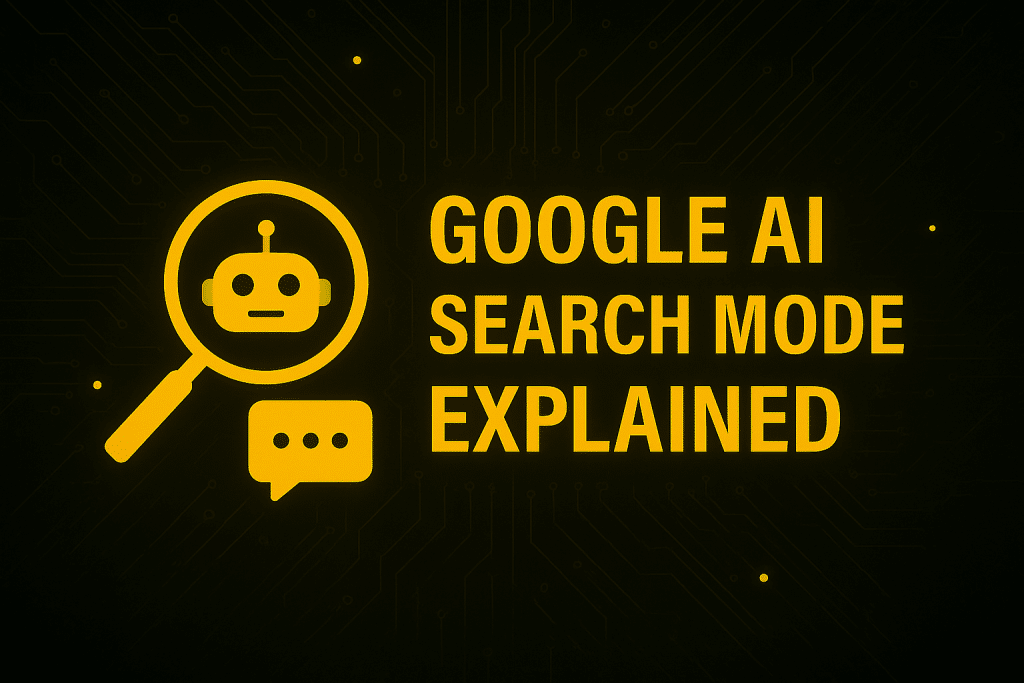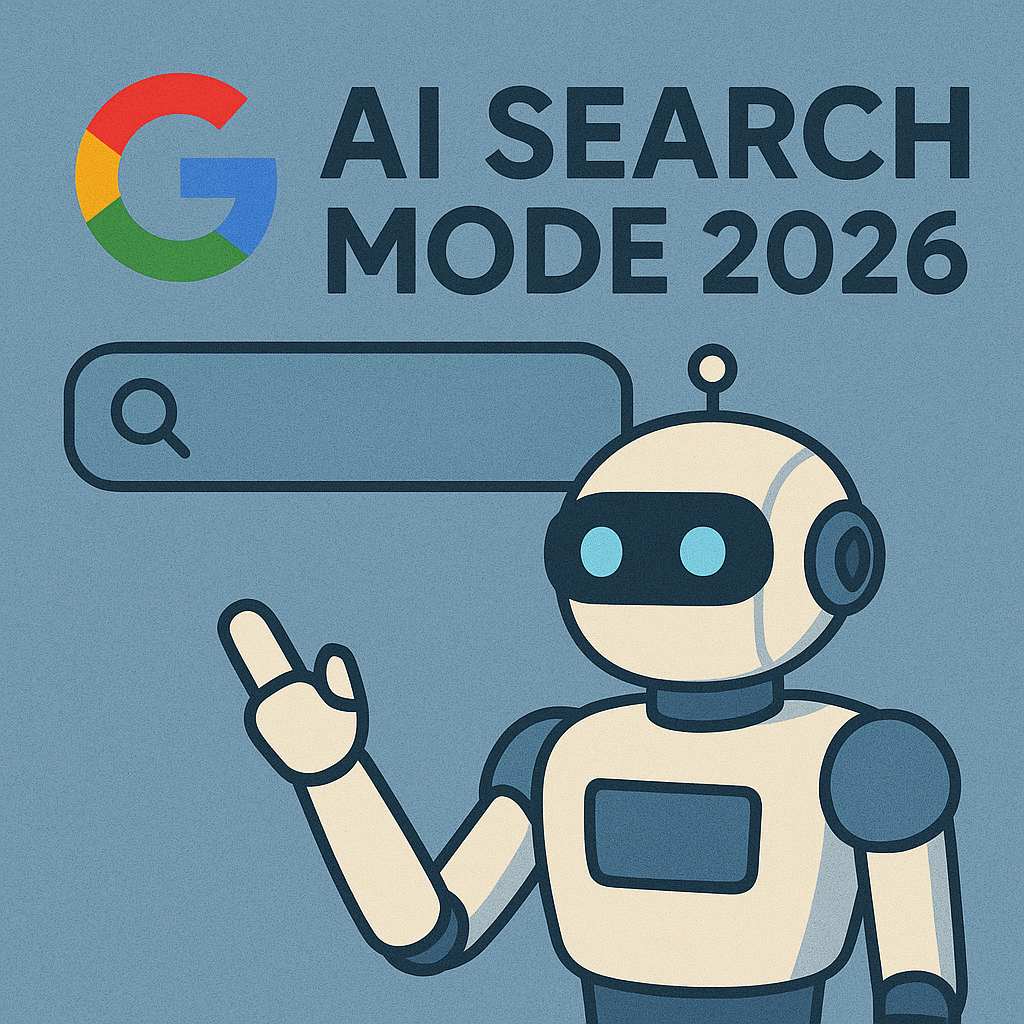
Google’s AI Search Mode, known as Search Generative Experience (SGE), is a groundbreaking shift in how users interact with search results. By integrating generative AI into search, Google now provides AI-generated summaries, follow-up prompts, and deep-link suggestions directly in the SERP.
This evolution is critical for marketers and SEO agencies in Toronto because:
Click-through rates are dropping due to zero-click searches.
Traditional ranking positions are becoming less influential.
Content quality, structure, and AI relevance are now non-negotiable for visibility.
Unlike the standard “10 blue links,” SGE presents concise, AI-curated insights above the fold—changing how users consume information and which pages they click.
How Google AI Search Mode Impacts Organic Rankings
1. Fewer Clicks, More Summarization
With AI-generated answers, Google summarizes top-ranking content, meaning:
Users get instant answers without clicking.
Impressions rise, but clicks decline—affecting CTR and engagement.
Marketers need to optimize for AI summarization, not just traditional rankings.
2. Structured Content Wins
SGE favors content that follows clear hierarchy, semantic structuring, and rich snippet-friendly formats. That means your content must:
Use relevant H2s and H3s tied to long-tail keywords.
Include FAQs, bullet points, and clear definitions.
Be topical, updated, and authoritative.
Want to see how content structure affects performance? Review our guide: Content Optimization: Boosting Engagement and Rankings
Why Toronto Marketers Must Adapt or Get Left Behind
Toronto’s SEO Landscape Is Already Evolving
The top-performing SEO agencies in Toronto are already shifting their strategies. Top SEO Agencies in Toronto Are Using AI to Outrank the Competition highlights how successful firms are combining AI tools and human creativity to dominate AI-driven SERPs.
Toronto businesses that rely solely on keyword stuffing or outdated on-page tactics are losing ground fast.
The Power of Prompt Engineering in SEO
To influence AI-generated search snippets, you must consider prompt engineering within your content. This means:
Structuring your paragraphs to answer potential user queries.
Embedding semantic relevance using related keyword clusters.
Implementing internal links that reflect intent, like our piece on Prompt Engineering: The Secret Weapon for SEO Firms in Toronto
How to Optimize Content for Google AI Search Mode
1. Answer-Based Writing
Write for user intent, not keyword density. Focus on:
“How to” guides
Comparisons
Lists
Definitions
This is especially important for local SEO in Toronto, where service-based businesses can capture intent-driven traffic. See: Why More Toronto Businesses Are Turning to Local SEO in 2025
2. Include Internal Linking With Contextual Value
AI doesn’t just crawl keywords—it understands topical relationships. Use internal links that:
Provide supplementary information
Reinforce trust by showing subject-matter authority
Support user journeys and engagement
Example: If you’re comparing DIY SEO vs. hiring an expert, link to Hiring a Toronto SEO Expert vs Doing It In-House: Pros & Cons
AI Search Results Are Personalized—Are You Ready?
With AI search, user intent and behavior now shape the results more than ever. Google may personalize responses based on:
Search history
Location
Engagement with prior content
Your content must be localized, engaging, and tailored for personas.
Leverage Schema and Rich Data
To qualify for inclusion in SGE summaries:
Add FAQ Schema, How-To Schema, and Product Schema
Use structured data for articles, videos, and reviews
Stay compliant with Google’s Structured Data Guidelines
Challenges Marketers Face in the AI Search Era
Content cannibalization as Google scrapes data from multiple sites.
Loss of brand control if your brand is summarized inaccurately.
Reduced organic traffic, even with top rankings.
This isn’t just a visibility problem—it’s a conversion problem. You need to turn impressions into authority.
How Our Toronto SEO Company Helps You Win in AI Search
Strategic AI-Integrated Content Creation
We create content that’s not only optimized for rankings, but designed to be summarized by AI—maximizing your visibility in the new search format.
Keyword Clustering and Intent Mapping
We use AI-powered clustering to:
Group keywords by intent
Identify opportunities for topical authority
Build pages that mirror search behavior
Discover how we use this approach in Toronto Marketing Agencies Are Winning With AI-Driven Keyword Clustering in 2025
Content Engineering & Technical SEO
We blend technical SEO, semantic structuring, and conversion-focused writing to outperform generic SEO content in 2025’s AI ecosystem.
Why Choosing the Right Toronto SEO Partner Matters
A basic SEO agency won’t cut it anymore. You need a specialist team that understands AI, user behavior, and the local Toronto market.
Want proof? Read about How We Helped a Toronto Law Firm Dominate Local Search Results
Take Control of Your Google Visibility—Before AI Does
Don’t let AI filter your brand out of the conversation. With the right strategy, you can:
Rank within SGE snapshots
Increase engagement
Drive qualified leads
📞 Let’s Make Your Website AI-Ready Today
Contact Us to schedule a free strategy session.
FAQs About Google AI Search Mode for Marketers
1. What is Google SGE (Search Generative Experience)?
SGE is Google’s AI-powered feature that displays summarized answers at the top of search results using content from various websites.
2. Will SGE reduce traffic to my site?
Yes, if your content isn’t optimized for inclusion in summaries or lacks depth. High-quality, well-structured content can still earn clicks.
3. How can I get my content featured in Google AI results?
Use structured data, semantic headers, answer-based content, and establish topical authority within your niche.
4. Is Google AI Search Mode active globally?
As of 2025, it’s rolling out in most English-speaking regions including Canada. Localization strategies are essential.
5. Can Toronto businesses still win in AI search?
Absolutely—by working with an expert SEO team that understands AI algorithms, search behavior, and local market trends.


